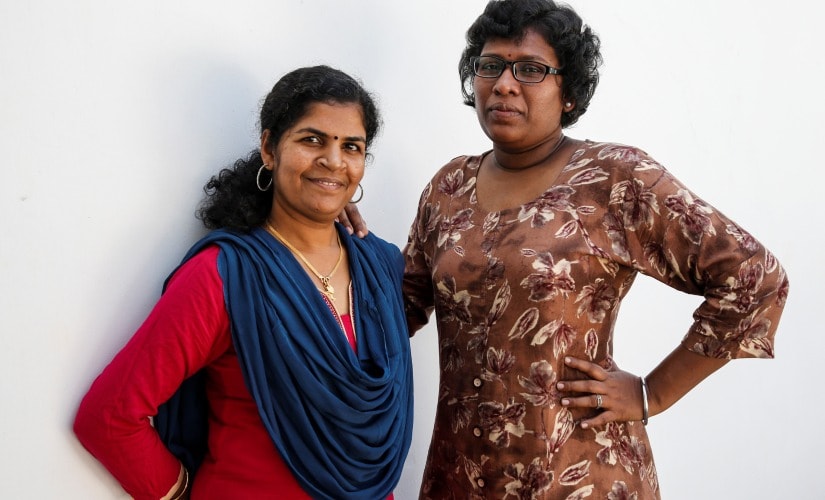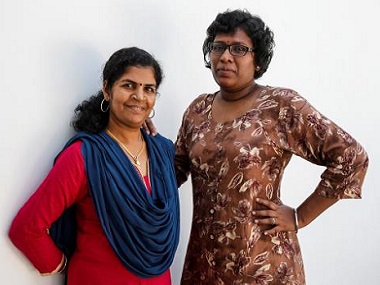Editor’s note: This article was originally published on 28 January, 2019. It is being republished in light of the Supreme Court verdict on a batch of petitions seeking the re-examination of its decision to allow the entry of women of menstruating age into Kerala’s Sabarimala Temple that is due on Thursday. There is something urgent and necessary about a body claiming space. It is a call for action that moves beyond back and forth dialogue, beyond discourse obsessed with pros and cons. When a person, aware of pushback, moves forward and asserts themselves, they have squarely aligned with the revolution. When Rosa Parks refused to give up her bus seat for a white passenger in the deeply segregated state of Alabama, courting arrest; when the mothers of Manipur took to the streets of Imphal against the Armed Forces (Special Powers) Acts, they weren’t protesting from cushioned heights. They were making themselves visible — the vulnerable frontline of a battle that would outlast them. Just like the women fighting to enter Sabarimala and those volunteering for the Agasthyakoodam trek. Despite the September 2018 verdict by the Supreme Court of India that revoked the Kerala Sabarimala Temple’s ban on women below the age of 50 from its premises, it has been an uphill struggle for female devotees under that age to gain entrance there. [caption id=“attachment_5898521” align=“alignnone” width=“825”]  Kanaka Durga, 39 (L) and Bindu Ammini, 40, who entered Sabarimala temple earlier this month. Reuters/Sivaram V[/caption] The Agasthyakoodam trek leads devotees to the idol of Agasthya Muni, revered by members of the Kani tribe who call the hills of Agasthyamala home. An unofficial code disallowed women from the trekking season, when the tribe members offer prayers to the deity. As the controlled trekking period coincided with the holy days, women were essentially barred from climbing up the hills. That is, until a November 2018 Kerala High Court ruling, which lifted any gender-based restrictions imposed by the trek . Registrations for trekking the 23 km path — sought after by the adventurous and faithful alike — were only recently opened up to women. [Dhanya Sanal, the spokesperson of the Defense Ministry in Thiruvananthapuram, became the first woman to trek to the top of the trail on 15 January 2019.] The resistance to the opening of both spaces for women is vested in upholding the celibacy of the gods in question, and the male devotees who flock to these sites. The ‘virtue’ of men is prioritised to the exclusion of women. All over the world — across religions and states, democracies and theocracies — faith is used to justify segregation of people. That it took the Supreme Court to qualify menstruation as a non-polluting biological phenomenon would be shocking, were it not for the countless Hindu families who continue to exclude menstruating women from their living spaces. India allows every citizen the fundamental right be treated with fairness and equality. This includes the women who wish to trek the Agasthyakoodam trail, the women who fought for and won access to the inner sanctum of the Haji Ali Dargah in 2016, and the women who wish to pray to Ayyappa at Sabarimala. The women who have backed and supported the legal battle to enter Sabarimala and Agasthyakoodam may be buoyed by the court judgements, but they have been offered no support from the loud, visible players of the national political arena. These women have been fighting alone, with some support from fellow activists and social media crusaders. Our tweets, our circulation of court verdicts, our take down of trolls aside, it is the women — lining up to enter Sabarimala, to trek to Agasthyakoodam — who are placing their bodies at immense personal risk to lead the revolution. On the first day of the New Year, braving calls for strike by BJP-RSS workers and aggressive pushback, approximately 50 lakh women lined up with arms outstretched, to build a Vanitha Mathil — a women’s wall of solidarity and assertion. On 2 January 2019, two women — Bindu and Kanaka Durga — entered the temple premises for the first time after the Supreme Court ruling. Immediately after their exit, the temple priest carried out a “purification ritual” . Other women, in their attempts to enter the temple, have met with reactionary anger from protestors and have had to turn back.
This is what it means to place your body at the site of protest: To know that it is derided, unwanted and hated, but somehow finding the strength to soldier on.
To use your body to walk, climb, kneel, assert in the face of absolute adversity is awe-inspiring. Over the last several years, Indian feminism has come of age; it has escaped from the controlled, exclusive spaces of academia and come into our living rooms and mobile phones. But with the women entering Sabarimala and trekking up Agasthyakoodam, it is also ready to reflect on majoritarian faith and fight for its revision. The powers that be, the ones whose opinion rests on vote bank politics, will never fully commit to the fight, and that’s precisely why these women — and their corporeal revolution — are so vital to the very fabric of the gender equality movement in this country. In 1980, American urban historian, architect, and poet Dolores Hayden published a revelatory, inspired essay titled, ‘What Would a Non-Sexist City Be Like?’ In it, she argued that for far too long, urban spaces had been designed to exclude the domestic from the professional, to isolate the invisible labour of women to prioritise private time for the breadwinning men of the nuclear family. She proposed an alternative model, one that broke down the walls of secluded domestic work spaces to favour communal housing and organising, where women are visible, and thus compensation for labour accessible. The model assembles women into a force, because real assimilation can never happen with one woman alone. Public space in India has always been resistant to the freedom and safety of women and other people of marginalised gender and caste identities. Women persisting to enter spaces of faith only goes on to normalise their presence in our temples, on our streets, and at workplaces. The women in Kerala have mobilised themselves into a mass movement, and it is time for us to follow. Meher Manda is a poet, short story writer, journalist, and educator from Mumbai, currently based in New York.


)

)
)
)
)
)
)
)
)



